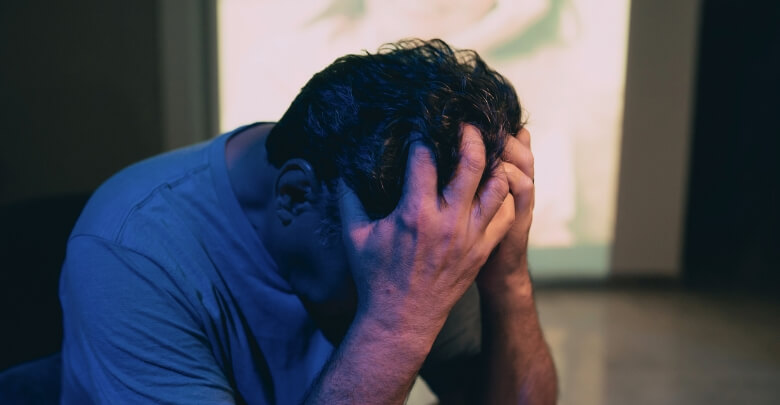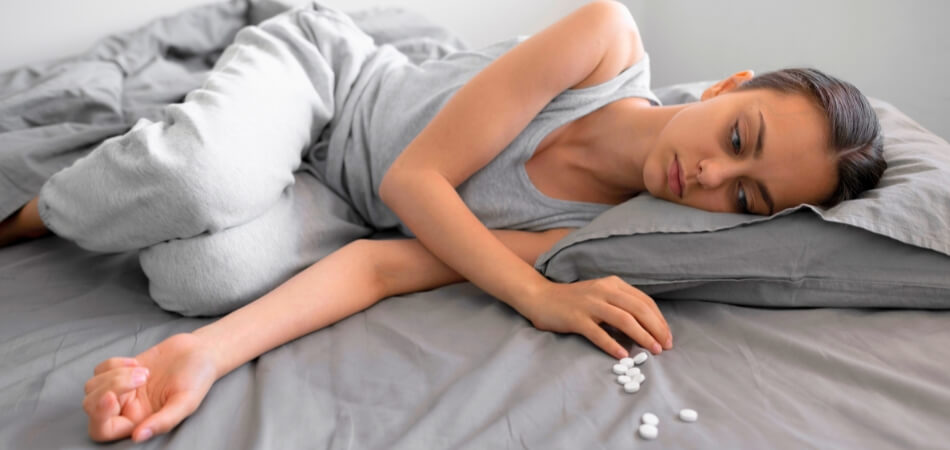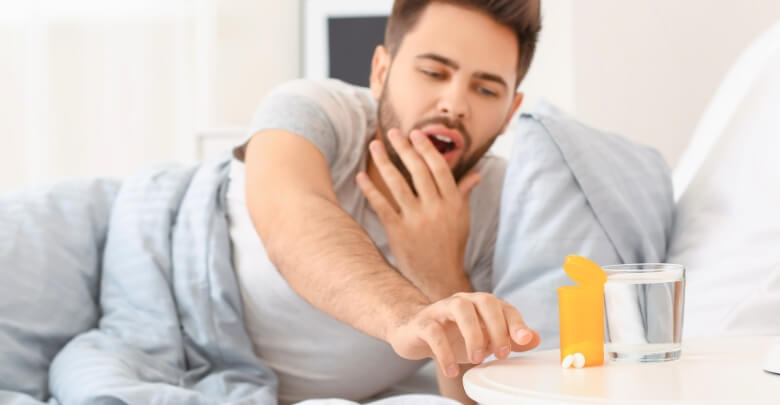A question regarding whether sleeping pills can affect mental health is gaining widespread attention since sleep plays a decisive role in mental and physical well-being. Sleep disorders, such as insomnia, affect millions worldwide, prompting many to turn to medication for relief.
Sleeping pills are a common choice, but concerns arise about their long-term impact. This discussion naturally led to the question “Can sleeping pills cause depression?”
Evidence suggests that certain sleep medications, particularly benzodiazepines and non-benzodiazepine hypnotics, may indeed increase the risk of depression when used for prolonged periods. These drugs can alter brain function, modify sleep architecture, and lead to dependency and other severe side effects.
As we explore this major issue in greater depth, please join us. We explore the link between sleeping pills and depression, and what alternatives might exist for those seeking a good night’s sleep.
What Studies Say About Sleeping Pills and Depression?
The complex relationship between sleeping pills and depression has been revealed by recent research. Studies often highlight that the long-term use of certain sleep medications, such as benzodiazepines, can increase the risk of depression.

According to the theory, the underlying mechanisms are changes in brain function and sleep architecture, resulting in dependence. Moreover, these medications might contribute to memory issues, brain degeneration, and even an increased risk of dementia, particularly among older adults.
However, not everyone who struggles with sleep needs these medications. Alternatives like using gadgets designed for mindful sleeping such as chill pills, can be a safer and more sustainable approach.
With the help of these devices, sleep can be managed without the use of pharmaceuticals. This discussion prompts us to consider the broader implications of our sleep aid choices and encourages a deeper look at safer, more holistic sleep solutions.
Exploring the Risks: Can Sleeping Pills Cause Depression?
In order to find restorative sleep, we often turn to sleeping pills, especially if we suffer from insomnia and other sleep disorders. This widespread use raises the following question: Can sleeping pills cause depression?

There may be a link, particularly with the prolonged use of certain types of medications like benzodiazepines and non-benzodiazepine hypnotics. These drugs not only alter sleep architecture but also affect brain function over time, which can lead to several mental health issues, including depression.
Here are the core aspects regarding the concern.
Impact on Brain Function
Sleeping pills can significantly change brain function. This alteration can diminish its ability to regulate emotions and stress, leading to depressive symptoms. Prolonged use might even contribute to brain degeneration, which further complicates mental health.
Another aspect to consider is how these drugs affect neurotransmitters. They typically suppress the nervous system, which dulls the overall emotional response, making it more difficult for users to experience positive emotions.
Dependency and Tolerance
Over time, the body can develop a tolerance to sleeping pills, necessitating higher doses for the same sleep-inducing effect. This dependency can trap individuals in a cycle of increasing use, which can be difficult to break without professional help.
The development of tolerance also worsens withdrawal symptoms when it is time to quit or reduce dosage. These symptoms can be intensely stressful and may trigger or worsen depressive episodes.
Sleep Quality and Structure
Although intended to aid sleep, these medications can degrade sleep quality and structure over time. They often reduce deep REM sleep, which is crucial for emotional and cognitive health.
Poor sleep quality can lead to daytime fatigue and mood swings, contributing to depressive feelings. As a result of poor sleep, cognitive function can also be impaired over time, ultimately impacting mental health overall.
Risks Beyond Depression
While the focus often lies on depression, it’s crucial to recognize that abuse carries risks that extend even further. At extreme levels, misuse of these medications can increase the risk of life-threatening situations, though it’s a topic often not discussed openly.
This increased risk serves as a sober reminder of the importance of using these medications responsibly and under medical supervision.
Alternatives and Solutions
For those concerned about these risks, exploring alternatives to pharmaceutical sleep aids is advisable. Techniques such as cognitive-behavioral therapy for insomnia (CBT-I), mindfulness practices, and lifestyle changes can be effective and carry fewer risks.
When we examine how sleeping pills might contribute to depression, it becomes clear that while they offer short-term relief, their long-term use requires careful consideration and management. To find safe and effective solutions to sleep-related problems, discuss all options with healthcare providers.
Who Is Most at Risk of Depression from Sleeping Pills?
The identification of risk factors associated with sleeping pill-induced depression is extremely important, especially for those who frequently use these medications. A few individuals may be more sensitive to sleeping pills’ adverse effects, leading to questions about safer alternatives and preventative measures.

Elderly Patients
Older adults often metabolize drugs slower than younger people, which can enhance and prolong sleeping pills’ effects. This makes them more susceptible to side effects, including depression. The risk of cognitive decline and dementia also increases with these medications in elderly populations.
Individuals with A Substance Abuse History
People with a history of substance abuse may be more likely to become dependent on sleeping pills. This dependency can exacerbate or lead to depressive symptoms, as the body and brain become increasingly reliant on medication for sleep.
Patients with Pre-Existing Mental Health Disorders
Those already managing anxiety or major depression may worsen their symptoms with sleeping pill use. The interaction between sleeping pills and other medications used to treat mental health disorders can alter emotional and psychological stability. Depression is more likely.
The first step in managing and mitigating sleeping pills’ potential negative impacts. A healthcare provider can help explore alternative treatments and preventive measures to reduce depression risk and improve overall well-being.
Alternatives to Sleeping Pills: Natural Remedies and Lifestyle Changes
If you are anxious about possible side effects from sleeping pills, natural remedies, and lifestyle changes can be effective alternatives. These options enhance sleep quality but also promote overall health, offering a holistic approach to better sleep. Here are they.

Mindfulness and Relaxation Techniques
Practicing mindfulness or relaxation exercises before bed can significantly improve sleep quality. Techniques like guided imagery, progressive muscle relaxation, or breathing exercises reduce stress. Consistent practice of these methods can decrease the need for sleeping pills by naturally relaxing the mind.
Herbal Supplements
Herbal supplements are known for their sleep-inducing properties. Valerian root, chamomile, and lavender are popular choices used traditionally to treat insomnia. They calm the nervous system, making it easier to fall and stay asleep.
Sleep Hygiene Improvements
An important part of improving sleep hygiene is changing the environment and behavior conducive to better sleep. Keeping a regular sleep schedule, optimizing bedroom conditions for sleep, and avoiding caffeine before bedtime can improve sleep quality. Nighttime awakenings are reduced with these adjustments.
These alternatives to sleeping pills provide a safer route to better sleep, emphasizing natural methods and healthy habits over medication. Discussing these options with a doctor can help formulate a sleep plan that works for you.
Tips to Safely Use Sleeping Pills without Risking Depression
The use of sleeping pills as a means of managing insomnia is quite common, but they must be used safely to prevent side effects. If you use these medications judiciously, you can minimize risks and ensure better sleep health. Here are some practical tips for safely consuming sleeping pills:

- Consult with a Healthcare Provider: Always discuss your sleep issues with a doctor before starting sleep medication.
- Follow Prescriptions Strictly: Take the prescribed dose without adjustments unless directed by your healthcare provider.
- Short-Term Use is Key: Limit sleeping pills use to short periods, ideally not exceeding a few weeks.
- Monitor Side Effects: Pay close attention to any changes in mood or behavior and report them to your doctor.
- Avoid Alcohol: Mixing sleeping pills with alcohol can increase the sedative effects dangerously and worsen depression.
- Combined with Good Sleep Practices: Implementing a bedtime routine and improving sleep hygiene can enhance sleeping pills’ effectiveness.
- Regularly Review Medication Needs: Have periodic consultations with your doctor to assess the necessity of continued medication use.
If you follow these guidelines, you can use sleeping pills as a temporary aid without significantly increasing your depression risk. These strategies help maintain sleep quality and mental health.
FAQs About Can Sleeping Pills Cause Depression?
There are many concerns and questions about sleeping pills’ safety and impact on mental health, especially regarding depression. Here are some of the FAQs and their insightful answers.
Is It Safe to Take Sleeping Pills Every Night?
Tolerance develops when taking sleeping pills nightly. Health problems may arise due to dependency and increased dosages required to achieve the same sleep-inducing effects.
What Happens if You Take a Sleeping Pill and Stay Awake?
Staying awake after taking a sleeping pill can increase the likelihood of complex sleep behaviors like sleepwalking or night terrors. Taking part in such activities can be dangerous since the individual is not fully aware.
Can Sleeping Pills Worsen Pre-Existing Depression?
Yes, sleeping pills can worsen pre-existing depression. The sedative effects of these medicines may make recovering from depression more difficult. A deeper or more frequent depression may result.
How Can I Safely Stop Taking Sleeping Pills?
It’s imperative to consult a healthcare provider before stopping sleeping pills. Gradual tapering, under medical supervision, reduces rebound insomnia and withdrawal symptoms.
What Is the Typical Time Frame for Depression from Sleeping Pills?
The time varies depending on individual health factors, sleeping pill type, and usage patterns. Using it long-term, typically beyond a few weeks, is more likely to cause depression.
Final Perspective
The study of the connection between sleep aids and mental health has yielded significant insights. Prolonged use of certain sleeping pills, particularly benzodiazepines and non-benzodiazepine hypnotics, may indeed affect mental stability.
So, Can sleeping pills cause depression? Research indicates a potential risk, especially when these medications are used extensively, affecting brain function and altering sleep patterns.
To mitigate these risks, it’s advisable to consult with healthcare professionals, adhere strictly to prescribed dosages, and incorporate healthy sleep practices. A limited use of these pills and monitoring for adverse effects can help maintain sleep quality and mental health.






